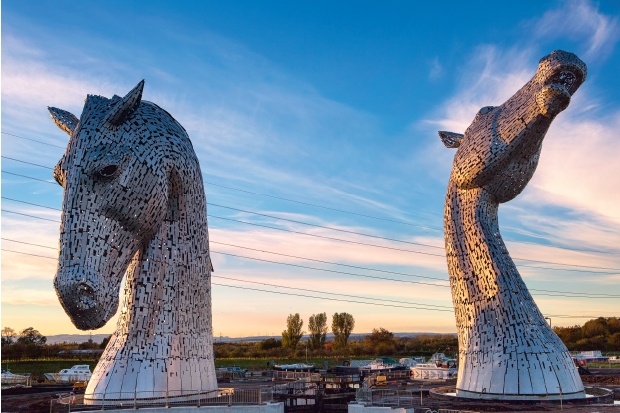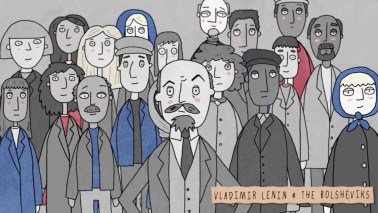Like peace, love and lemon-meringue pie, ‘public art’ seems unarguably attractive. Who but a philistine curmudgeon would deny the populace access to the immediate visual thrills and the enduring solace of beauty that the offer of public art seems to promise?
Public art is surely a democratic benefit. Never mind that in the past century its most forceful expression was the grim and malignantly deceitful narratives of Soviet socialist realism, with their ruddy-faced, grinning and buxom tractor drivers disguising a more real reality of starvation, intolerance and torture. Public art is here to be enjoyed at a desolate piazza near you.
And then you begin to think about it. Has public art ever achieved any level of popular approval or intellectual respect? It’s rarely edifying. It is that ludicrous, annoying excrescence, reluctantly paid for by a guilty property developer or worried into existence by ambitious arts administrators with unemployed ‘sculptors’ or aesthetically inclined welders on their books. It tends towards silly overblown gestures and indulgent nonsense.
Thus it’s something at which the French excel, as anyone travelling la Belle France’s autoroutes knows. Here, tormented and meaningless structures in self-rusting Cor-Ten steel hover periodically over traffic composed of cars whose own sculptural sophistication mocks the crudity of the public art.
What’s that horrible shiny pink thing on the Embankment near Tate Britain, on the spot where convicts to Australia were once glumly transported? It’s public art: a fatuous blob whose vapidity is matched only by its vanity. And whose vapidity and vanity are, in turn, matched only by popular disdain. The great Australian architecture critic Robin Boyd coined ‘featurism’ as a term of condemnation. Featurism is what happens when an architect bereft of intelligent ideas in building design adds a wiggle or squiggle to a building to sex it up. Public art is featurism on a plinth.







Comments
Join the debate for just £1 a month
Be part of the conversation with other Spectator readers by getting your first three months for £3.
UNLOCK ACCESS Just £1 a monthAlready a subscriber? Log in